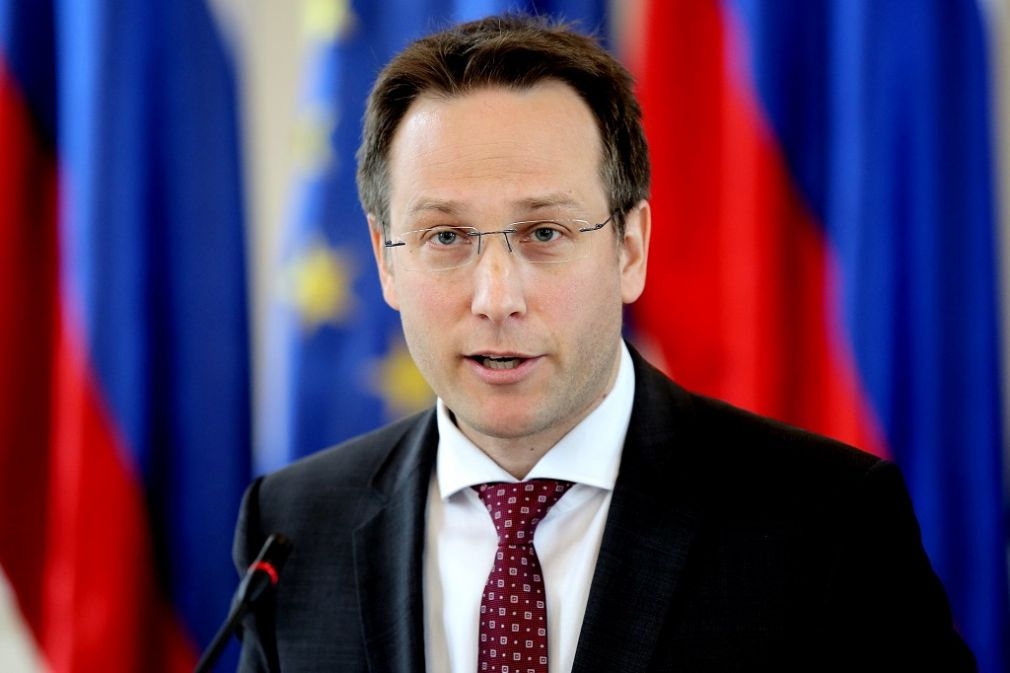The arrogance of the former government led by Marjan Šarec left us unprepared for the first wave of COVID-19, which represented one of the biggest threats to us since our independence. Nonetheless, we witnessed a lot of criticism from the left political wing, particularly with regards to the temporary restrictions on movement between municipalities. Yet, the Constitutional Court of the Republic of Slovenia ruled on Wednesday with five votes in favour and four against that the ban on movement between municipalities during the first COVID-19 outbreak was in accordance with the Slovenian Constitution.
In the affirmative separate opinion, DDr. Klemen Jaklič, among other things, emphasised that “one side of the scale depicts protection of one of the most valuable and protected constitutional values – human life and health – at a time of unpredictable and not sufficiently known but dangerous epidemic, which could have resulted in deadly outcomes if the disease had not been controlled rapidly and effectively”. According to Jaklič, we have witnessed this dreadful scenario in Italy.
Even the medical profession cannot reach a consensus
Jaklič emphasises that even the medical profession cannot agree on the question whether the abandonment of measures or their delayed implementation would have exacerbated the situation to the point comparable to situations our neighbours and many others found themselves in. “As long as there are different opinions within the profession, which are not unreasonable, the Constitutional Court must act with special caution. These issues are not something the Court is an expert on, especially not in the circumstances of an unknown and under-researched new virus,” he said, adding that when there is no certainty, caution must be in place.
Otherwise, according to Jaklič, there is a (personal) responsibility for every wrong decision that results in a lost life or even a large number of lives. “However, the Constitutional Court – which judges the case only ex post, nor does it have a sufficiently qualified insight into all relevant aspects, nor consequently a formula for resolving even an unresolved issue in the profession – cannot and must not assume.”
A constitutional review of a case in such circumstances is not really difficult, Jaklič emphasises. “Especially because the mentioned constitutional values of life and health (all the more so in circumstances when these values are severely threatened) are more important than temporary partial restrictions on free movement, which is otherwise significant, but obviously under the given circumstances carries less weight, particularly during the worst period of the epidemic. “According to Jaklič, the main take-away from today’s decision for an autonomous citizen is to understand this logic. “He/she should realise that any decision to the contrary would be clearly wrong. It would be a product of the aspirations of some parallel “reality” created by the media or desires, which usually do not align with the world of truth and rational legal arguments.”
In addition to Jaklič, Rajko Knez, Dunja Jadek Pensa and Marijan Pavčnik also provided affirmative separate opinions. As expected, the following voted against: Matej Accetto, Rok Čeferin, Špelca Mežnar and Katja Šugman Stubbs. Acetto acknowledged that a serious infectious disease requires swift action by state authorities, but insisted that the government did not meet the condition to demonstrate a sufficient professional basis for the measure or to justify that this specific restriction on movement between municipal boundaries would have successfully prevented or slowed down the spread of COVID-19. According to him, the public was not properly informed of the reasons for imposing this measure.
According to STA, Čeferin described the decision as a “dangerous precedent”, saying the Constitutional Court is basically sending a message that during an epidemic, the executive branch is allowed to intervene in human rights and fundamental freedoms because it has to be trusted in times of crises. According to him, the measure of temporary prohibition of movement outside the municipality of permanent or temporary residence was not proportionate, as it did not contribute to curbing the spread of the virus or in other words, the government did not prove it with reasonable and professionally supported arguments. He says that even if the measure had contributed to slowing down the spread of infections, this goal could have been achieved with less invasive measures on the freedom of movement of Slovenes.
Had the government not acted quickly and taken the appropriate measures – which were implemented after consultation with the medical profession – the Italian scenario might not have been avoided in Slovenia. Most likely, when there was a shortage of protective equipment, no one wanted doctors to be forced to decide who to treat and who not to treat. Whether we like it or not, the temporary ban on movement between municipalities helped reduce people-to-people contact, thereby helping to reduce the number of infections and ultimately helped getting Slovenia back on track, which in the COVID-19 world looks slightly different.

